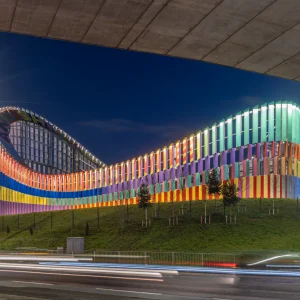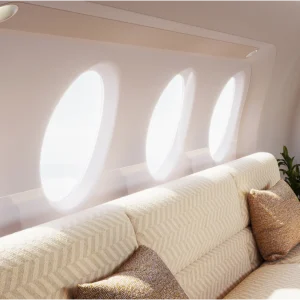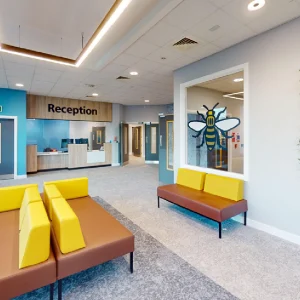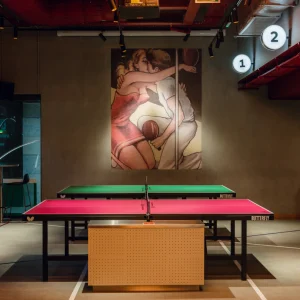Called as IDC9, the 11-story facility also conforms to the Standards Institution of Israel standard 5281 for green building.
The facility incorporated a host of green elements. Construction waste was separated at the source into its component parts and recycled. About 13% of the construction materials came from recycled sources. The structure was constructed on a previous parking site to prevent damage to natural assets. These measures are expected to result in a reduction of 17% in total energy consumption.
A cutting-edge energy-saving technique has been used in the facility’s server room. Spread over 700 square meters, the space will house up to 15,000 computers. The heat generated from these computers will be recycled for hot water and winter heating. The room uses energy-efficient lighting and is equipped with motion detectors that turn off the lights, when not in use. The building’s data center has also been designed to save energy. It features Intel Xeon processors, which reduce power consumption.
The building features wide and double glazed windows, patios and reflective shelves, which allow natural light to filter inside. More than 75% of its high-use areas are exposed to natural light with the help of automatic control systems, regulating the flow. Automatic sensors also control the levels of artificial lighting according to the natural light. Employees can also control lighting and temperatures in their offices through their personal computer. Fresh air is monitored by CO2 sensors that track the number of people on each floor.
The roof of the facility is covered with vegetation and heat-reflecting materials to lower interior temperatures. The roof garden provides enough thermal insulation to lower the heat load by 17 cooling tons. A special control system installed in the facility reduces water consumption for gardening needs by 55%, compared with average summer consumption. Water condensed by air conditioners is collected and used for gardening. The facility has also installed standard water-saving sanitary systems such as faucets, showers, toilets and urinals to achieve 30% reduction in water usage.
Intel has been operating in Israel since 1974. Intel Israel has four development centers (Haifa, Yakum, Jerusalem and Petah Tikva) and two production plants (Kiryat Gat and Jerusalem).





